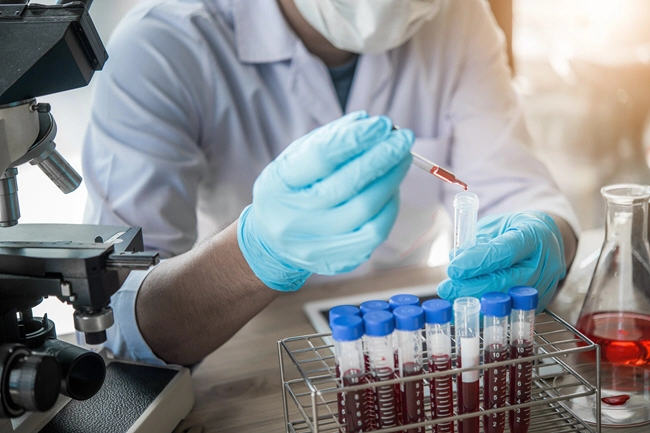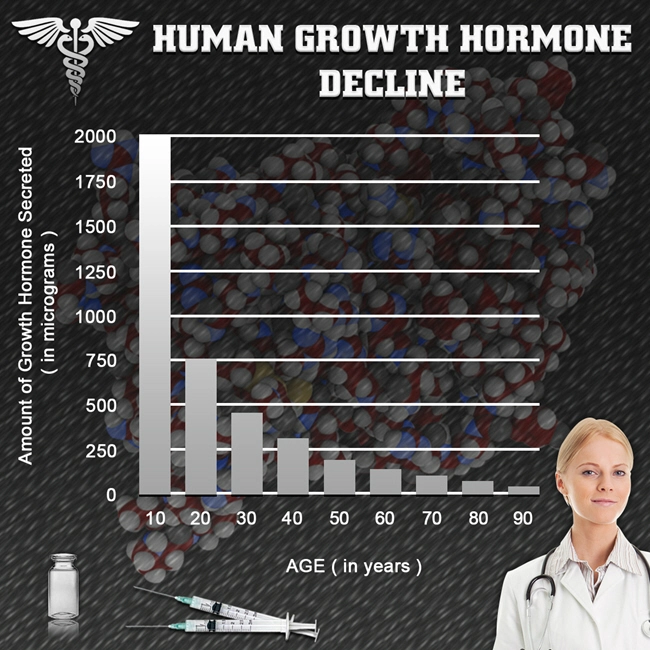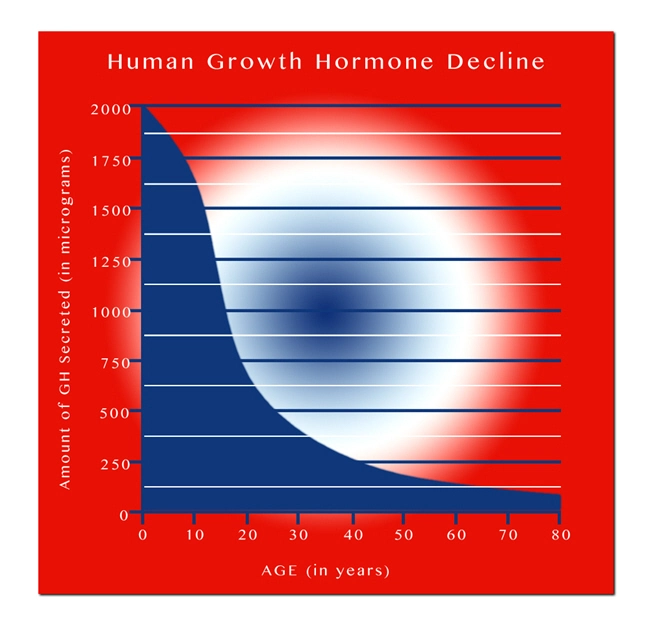
Introduction
In recent years, the field of reproductive medicine has witnessed a surge of interest in the therapeutic potential of peptides, particularly in the context of male fertility and reproductive health. As American males increasingly seek effective solutions to fertility challenges, the scientific community has turned its attention to the role of peptides in modulating reproductive functions. This article provides a comprehensive review of the clinical data surrounding the use of peptides in enhancing fertility and reproductive health among American males, offering insights into their mechanisms of action and potential benefits.
Understanding Peptides and Their Mechanisms
Peptides, short chains of amino acids, have emerged as promising agents in the realm of reproductive medicine due to their ability to interact with various cellular receptors and modulate physiological processes. In the context of male fertility, certain peptides have been found to influence spermatogenesis, hormone regulation, and overall reproductive function. For instance, gonadotropin-releasing hormone (GnRH) analogs have been used to stimulate the production of luteinizing hormone (LH) and follicle-stimulating hormone (FSH), which are crucial for spermatogenesis and testosterone production. Additionally, peptides such as kisspeptin have been shown to play a role in regulating the hypothalamic-pituitary-gonadal axis, thereby influencing reproductive hormone levels and sperm quality.
Clinical Evidence of Peptide Efficacy
Clinical studies have provided compelling evidence of the efficacy of peptides in enhancing male fertility. A randomized controlled trial conducted at a leading American fertility clinic found that men treated with GnRH analogs experienced significant improvements in sperm concentration and motility compared to the control group. Similarly, a meta-analysis of studies on kisspeptin administration demonstrated a positive impact on testosterone levels and sperm parameters in men with hypogonadotropic hypogonadism. These findings underscore the potential of peptides as a targeted therapeutic approach for addressing male infertility.
Peptides and Hormonal Balance
One of the key mechanisms through which peptides enhance male reproductive health is by restoring hormonal balance. Many American males suffer from hormonal imbalances that can impair fertility, such as low testosterone levels or elevated estrogen. Peptides like human chorionic gonadotropin (hCG) have been used to stimulate Leydig cells in the testes, leading to increased testosterone production. This not only improves sperm quality but also enhances libido and overall sexual function, contributing to better reproductive outcomes.
Safety and Side Effects
While the therapeutic potential of peptides is promising, it is crucial to consider their safety profile. Clinical data suggest that peptides are generally well-tolerated, with minimal side effects reported in most studies. However, as with any medical intervention, it is essential for American males to consult with healthcare professionals before initiating peptide therapy. Monitoring hormone levels and sperm parameters is recommended to ensure optimal dosing and minimize potential risks.
Future Directions and Research
The field of peptide therapy for male fertility is still in its nascent stages, and ongoing research continues to uncover new applications and mechanisms. Future studies may explore the synergistic effects of combining different peptides or integrating them with other fertility treatments. Additionally, personalized medicine approaches, tailored to the specific needs of individual American males, could further enhance the efficacy of peptide therapy in improving reproductive health.
Conclusion
The role of peptides in enhancing fertility and reproductive health among American males represents a promising frontier in reproductive medicine. Clinical data have demonstrated the potential of peptides to improve sperm quality, restore hormonal balance, and address underlying causes of infertility. As research progresses, peptides may become an integral part of the fertility treatment landscape, offering new hope to American males seeking to overcome reproductive challenges. By staying informed about the latest developments in peptide therapy, healthcare providers and patients alike can work together to optimize male reproductive health and achieve successful fertility outcomes.
Contact Us Today For A Free Consultation
Dear Patient,
Once you have completing the above contact form, for security purposes and confirmation, please confirm your information by calling us.
Please call now: 1-800-380-5339.
Welcoming You To Our Clinic, Professor Tom Henderson.

- Peptide-renovation: A New Dawn Embraces the Medical Science Sphere [Last Updated On: March 2nd, 2025] [Originally Added On: March 2nd, 2025]
- Peptides and Epigenetics: Key Roles in American Men's Health and Disease Prevention [Last Updated On: March 3rd, 2025] [Originally Added On: March 3rd, 2025]
- Exploring the Role of Peptides in Diabetes Management: Therapeutic Potential and Future Directions [Last Updated On: March 3rd, 2025] [Originally Added On: March 3rd, 2025]
- Peptides as Potential Treatments for Neurological Disorders [Last Updated On: March 4th, 2025] [Originally Added On: March 4th, 2025]
- Exploring Peptide-Based Immunotherapy in Men's Health: Cancer and Autoimmune Diseases [Last Updated On: March 5th, 2025] [Originally Added On: March 5th, 2025]
- Emerging Role of Peptides in Enhancing Men's Health and Treating Chronic Diseases [Last Updated On: March 6th, 2025] [Originally Added On: March 6th, 2025]
- Unlocking the Power of Antimicrobial Peptides in Men's Health and Beyond [Last Updated On: March 7th, 2025] [Originally Added On: March 7th, 2025]
- Peptides in Male Skincare: Enhancing Skin Health with Science and Simplicity [Last Updated On: March 8th, 2025] [Originally Added On: March 8th, 2025]
- Revolutionizing Men's Health: The Power of Biomimetic Peptides in Regenerative Medicine [Last Updated On: March 9th, 2025] [Originally Added On: March 9th, 2025]
- Unveiling the Anti-Aging Secrets: The Role of Peptides in Modern Medicine [Last Updated On: March 11th, 2025] [Originally Added On: March 11th, 2025]
- Advancements in Therapeutic Proteins and Peptides: A New Frontier for American Male Health [Last Updated On: March 12th, 2025] [Originally Added On: March 12th, 2025]
- Unlocking the Potential of Peptides in Revolutionizing Allergy Treatment for American Males [Last Updated On: March 13th, 2025] [Originally Added On: March 13th, 2025]
- Revolutionizing Health: The Role of Peptides in Precision Medicine for American Males [Last Updated On: March 13th, 2025] [Originally Added On: March 13th, 2025]
- Unlocking the Power of Peptides in Wound Healing and Tissue Repair for American Males [Last Updated On: March 15th, 2025] [Originally Added On: March 15th, 2025]
- Peptides Revolutionizing Eye Health Treatments for American Males [Last Updated On: March 18th, 2025] [Originally Added On: March 18th, 2025]
- Peptides: A Promising Solution for Metabolic Disorders in American Males [Last Updated On: March 18th, 2025] [Originally Added On: March 18th, 2025]
- Peptides: A New Frontier in Managing Respiratory Health for American Males [Last Updated On: March 19th, 2025] [Originally Added On: March 19th, 2025]
- Peptides and Gene Therapy: Revolutionizing American Male Health Treatments [Last Updated On: March 19th, 2025] [Originally Added On: March 19th, 2025]
- Peptides Revolutionize Diagnosis and Drug Delivery for American Men's Health [Last Updated On: March 19th, 2025] [Originally Added On: March 19th, 2025]
- Peptide-Based Therapies: A New Frontier in Obesity Management for American Males [Last Updated On: March 20th, 2025] [Originally Added On: March 20th, 2025]
- Peptides: A New Frontier in Managing Infectious Diseases for American Males [Last Updated On: March 21st, 2025] [Originally Added On: March 21st, 2025]
- Peptides in Veterinary Medicine: Enhancing Male Animal Health in America [Last Updated On: March 21st, 2025] [Originally Added On: March 21st, 2025]
- Peptide Therapeutics: Revolutionizing Chronic Disease Management in American Men's Health [Last Updated On: March 21st, 2025] [Originally Added On: March 21st, 2025]
- Peptide Vaccines: Progress, Challenges, and Impact on American Males' Health [Last Updated On: March 21st, 2025] [Originally Added On: March 21st, 2025]
- Peptides and Stem Cells: Revolutionizing Men's Health Treatments in America [Last Updated On: March 21st, 2025] [Originally Added On: March 21st, 2025]
- Peptide Biomarkers: Revolutionizing Disease Detection for American Males [Last Updated On: March 22nd, 2025] [Originally Added On: March 22nd, 2025]
- Peptides in Endocrinology: Revolutionizing Male Health and Performance [Last Updated On: March 22nd, 2025] [Originally Added On: March 22nd, 2025]
- Peptides in Men's Skincare: Enhancing Health and Appearance [Last Updated On: March 22nd, 2025] [Originally Added On: March 22nd, 2025]
- Peptides: Enhancing Gut Health and Wellness in American Males [Last Updated On: March 23rd, 2025] [Originally Added On: March 23rd, 2025]
- Peptides Revolutionizing Neuropathic Pain Management for American Males [Last Updated On: March 24th, 2025] [Originally Added On: March 24th, 2025]
- Peptides: Unlocking Health and Anti-Aging Benefits for American Males [Last Updated On: March 24th, 2025] [Originally Added On: March 24th, 2025]
- Peptide-Based HIV Vaccines: Progress, Promise, and Challenges for American Males [Last Updated On: March 24th, 2025] [Originally Added On: March 24th, 2025]
- Peptides Revolutionize Epilepsy Management for American Males: A New Hope [Last Updated On: March 24th, 2025] [Originally Added On: March 24th, 2025]
- Peptide Radiopharmaceuticals: Revolutionizing Cancer Imaging and Therapy for American Males [Last Updated On: March 24th, 2025] [Originally Added On: March 24th, 2025]
- Peptides: A Promising Solution for Male Hair Loss Treatment [Last Updated On: March 24th, 2025] [Originally Added On: March 24th, 2025]
- Peptide Therapies: A New Frontier in Treating Rheumatic Diseases for American Males [Last Updated On: March 24th, 2025] [Originally Added On: March 24th, 2025]
- Bioactive Peptides: Enhancing Health and Preventing Disease in American Men [Last Updated On: March 24th, 2025] [Originally Added On: March 24th, 2025]
- Peptide Bioinformatics: Revolutionizing Precision Medicine for American Males [Last Updated On: March 24th, 2025] [Originally Added On: March 24th, 2025]
- Peptide Therapy: A Promising Treatment for Hematological Conditions in American Males [Last Updated On: March 24th, 2025] [Originally Added On: March 24th, 2025]
- Peptides in Sports Medicine: Enhancing Performance and Recovery for American Male Athletes [Last Updated On: March 25th, 2025] [Originally Added On: March 25th, 2025]
- Peptides: Revolutionizing Men's Health with Targeted Therapies [Last Updated On: March 25th, 2025] [Originally Added On: March 25th, 2025]
- Peptides: A New Frontier in Combating Antibiotic Resistance for American Males [Last Updated On: March 25th, 2025] [Originally Added On: March 25th, 2025]
- Peptide-Based Biosensors: Revolutionizing Health Monitoring for American Males [Last Updated On: March 25th, 2025] [Originally Added On: March 25th, 2025]
- Peptides: A New Frontier in Mental Health for American Men [Last Updated On: March 25th, 2025] [Originally Added On: March 25th, 2025]
- Peptides: A New Hope for Treating Neurodegenerative Diseases in American Men [Last Updated On: March 25th, 2025] [Originally Added On: March 25th, 2025]
- Peptide Therapies: Enhancing Bone Health in American Males [Last Updated On: March 26th, 2025] [Originally Added On: March 26th, 2025]
- Peptide Therapies Revolutionizing Transplant Medicine: Enhancing Success and Reducing Rejection [Last Updated On: March 26th, 2025] [Originally Added On: March 26th, 2025]
- Topic Peptides: A Promising Therapy for Gastrointestinal Disorders in American Males [Last Updated On: March 26th, 2025] [Originally Added On: March 26th, 2025]
- Peptide Therapeutics: Targeted Hope for American Males with Rare Diseases [Last Updated On: March 26th, 2025] [Originally Added On: March 26th, 2025]
- Peptide Drugs in Pediatrics: Targeted Therapies for American Males' Children [Last Updated On: March 26th, 2025] [Originally Added On: March 26th, 2025]
- Peptides Revolutionizing Dental Care for American Males: Healing, Implants, and Pain Management [Last Updated On: March 27th, 2025] [Originally Added On: March 27th, 2025]
- Peptides: Enhancing Male Fertility Through Hormonal Balance and Sperm Quality [Last Updated On: March 27th, 2025] [Originally Added On: March 27th, 2025]
- Stem Cells and Peptides: Enhancing Health and Longevity for American Men [Last Updated On: March 27th, 2025] [Originally Added On: March 27th, 2025]
- Peptides Revolutionize Nanomedicine: Enhancing Health Outcomes for American Men [Last Updated On: March 27th, 2025] [Originally Added On: March 27th, 2025]
- Peptides: A New Frontier in Cardiovascular Health for American Men [Last Updated On: March 27th, 2025] [Originally Added On: March 27th, 2025]
- Peptides and Liver Health: Insights for American Males on Regeneration and Inflammation [Last Updated On: March 27th, 2025] [Originally Added On: March 27th, 2025]
- Peptides Revolutionize Toxicology: Diagnosis and Treatment Advances for American Males [Last Updated On: March 28th, 2025] [Originally Added On: March 28th, 2025]
- Peptide-Based Anti-Venom Therapy: A Promising Future for American Males [Last Updated On: March 28th, 2025] [Originally Added On: March 28th, 2025]
- Peptide-Polymer Composites: Revolutionizing Personalized Medicine for American Males [Last Updated On: March 28th, 2025] [Originally Added On: March 28th, 2025]
- Peptides: A Targeted Approach to Managing Inflammation in American Males [Last Updated On: March 28th, 2025] [Originally Added On: March 28th, 2025]
- Peptides: A Promising Frontier in Stroke Treatment for American Males [Last Updated On: March 29th, 2025] [Originally Added On: March 29th, 2025]
- Peptides Revolutionizing Trauma Care for American Males: Healing and Psychological Recovery [Last Updated On: March 29th, 2025] [Originally Added On: March 29th, 2025]
- Peptide-Enhanced Photodynamic Therapy: Advances and Applications for American Males [Last Updated On: March 30th, 2025] [Originally Added On: March 30th, 2025]
- Peptides as Cell-Penetrating Agents: Revolutionizing Men's Health Treatments [Last Updated On: March 30th, 2025] [Originally Added On: March 30th, 2025]
- Peptide Vaccines in Veterinary Medicine: Applications, Benefits, and Future Prospects [Last Updated On: March 30th, 2025] [Originally Added On: March 30th, 2025]
- Peptides in Acute Kidney Injury: Inflammation Control and Kidney Function Enhancement [Last Updated On: March 31st, 2025] [Originally Added On: March 31st, 2025]
- Peptide Drug Conjugates: Revolutionizing Men's Health with Targeted Therapy [Last Updated On: April 1st, 2025] [Originally Added On: April 1st, 2025]
- Peptides in Burn Care: Enhancing Healing and Scar Management for American Males [Last Updated On: April 2nd, 2025] [Originally Added On: April 2nd, 2025]
- Peptides in Substance Abuse Treatment: Insights for American Males [Last Updated On: April 3rd, 2025] [Originally Added On: April 3rd, 2025]
- Peptides: A Promising Frontier in Osteoporosis Treatment for Aging Populations [Last Updated On: April 5th, 2025] [Originally Added On: April 5th, 2025]
- Peptide Therapies: A Promising Approach to Managing Autoimmune Diseases in American Men [Last Updated On: April 7th, 2025] [Originally Added On: April 7th, 2025]
- Peptides: A Promising Treatment for Ocular Infections in American Males [Last Updated On: April 7th, 2025] [Originally Added On: April 7th, 2025]
- Innovations in Peptide Therapies for Prostate Cancer: Mechanisms, Benefits, and Future Prospects [Last Updated On: April 8th, 2025] [Originally Added On: April 8th, 2025]
- Peptides: Key Players in Fighting COVID-19 and Future Pandemics [Last Updated On: April 9th, 2025] [Originally Added On: April 9th, 2025]
- Peptide Therapeutics: Revolutionizing Pulmonary Care for American Males [Last Updated On: April 10th, 2025] [Originally Added On: April 10th, 2025]
- Peptides in Geriatric Medicine: Enhancing Health and Vitality in Aging American Males [Last Updated On: April 10th, 2025] [Originally Added On: April 10th, 2025]
- Peptides: A New Frontier in Treating Male Infertility in American Men [Last Updated On: April 10th, 2025] [Originally Added On: April 10th, 2025]
- Peptides in Post-Operative Recovery: Enhancing Healing and Reducing Recovery Time [Last Updated On: April 11th, 2025] [Originally Added On: April 11th, 2025]
- Peptides in Veterinary Dermatology: Benefits, Challenges, and Future for American Male Pet Owners [Last Updated On: April 11th, 2025] [Originally Added On: April 11th, 2025]
- Peptide Therapy: A New Hope for Depression Treatment in American Males [Last Updated On: April 13th, 2025] [Originally Added On: April 13th, 2025]








